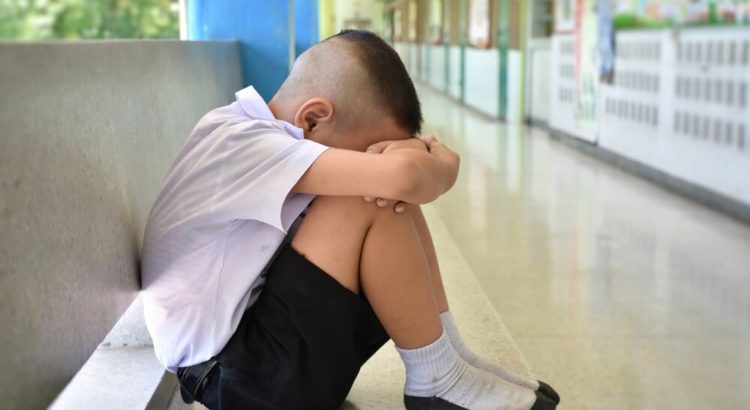Asia/ Japan/ 07.01.2020/ Source: www.studyinternational.com.
For some, school is a harrowing experience that students are forced to relive daily.
The long hours, vast amount of homework, the social pressure to perform academically, bullying, eating alone while others eat in groups, navigating through social cliques and just a general sense of not fitting in are just some of the cocktail of woes that make the experience overwhelming for some youths.
Dreading or hating school is common among some school-going children for various reasons, but the problem arises when students’ performance and mental well-being are affected as a result of attending school.
Are school systems to be blamed or does it suggest a problem with students?
Why students hate school

School can be brutal for students who struggle to fit in. Source: Shutterstock
Last year, a survey of primary school pupils in Hong Kong found that 21.7 percent complained of constant stress; common sources of pressure include too much homework, preparing for secondary school and unsatisfactory academic performance.
The figure was up 5.5 percentage points from a similar poll in 2016 and a three-year high.
Primary school student Javis Leung King-chung can relate.
“I was in school and my teacher said my class was too naughty, so although we started lessons at 7am, we had to stay on to work until 7pm,” the eight-year-old told the South China Morning Post.
“With our shocked looks and disgruntled sounds, the teacher then said we had to stay for 15 more hours. The more startled we became, the more the teacher kept increasing the hours. In the end, we had to stay for three days. I was so scared.”
Back in 2012, The Japan Times reported student Yuki Ujiie’s recollection of junior high school where he was beaten by bullies, ignored by his classmates and forced to eat alone when everyone else lunched in groups. When his teacher suggested that he join a girl’s group during lunchtime, he stopped going to school the very next day.
In a BBC report, 10-year-old Yuta Ito had been reluctantly attending his primary school as he was often bullied and kept fighting with his classmates. After telling his family that he no longer wanted to attend school, his parents sent him to a free school where he’s much happier.
Combatting absenteeism in schools – the rise of free schools in Japan

Many young students in Japan are reportedly refusing to go to school. Source: Shutterstock
A BBC report notes that more and more children are refusing to go to school in Japan, a phenomenon called “futoko”. Futokos are children who don’t go to school for more than 30 days, for reasons unrelated to health or finances, notes Japan’s education ministry.
Absenteeism in schools is rising in the country. On October 17, the government said absenteeism among elementary and junior high school students had hit a record high, with 164,528 children absent for 30 days or more during 2018, up from 144,031 in 2017.
Free schools were established in Japan in the 1980s in response to the growing number of futokos. These alternative schools are not free, but provide students with a more fluid learning environment, bereft of the rigid rules typically associated with Japanese national schools, such as exuding control over students’ appearances.
BBC notes that the number of students attending free or alternative schools instead of regular schools has spiked – from 7,424 in 1992 to 20,346 in 2017.
For example, students enrolled in the Tamagawa Free School in Tokyo don’t need to wear a uniform, are free to choose their activities and are also encouraged to follow their individual skills and interests.
Speaking to the BBC, Takashi Yoshikawa, the head of the school, believes that communication problems are at the root of most students’ refusal to attend school; as such, the school’s purpose is to develop students’ social skills.
This is done through various ways, including exercising, playing games or studying; the important thing is to learn not to panic when students are in a large group.
Meanwhile, Professor Ryo Uchida, an education expert at Nagoya University, said large class sizes can be problematic to pupils. He said comradeship is the key ingredient to surviving life in Japan due to the country’s high population density. Failing to get along and co-ordinate with others lessens one’s chances of survival.
However, the need to conform is a problem for many students who may feel uncomfortable in overcrowded classrooms. Professor Uchida said the support provided by free schools is very meaningful, as they care less about the group and value the thoughts and feelings of each student.
Source of the notice: https://www.studyinternational.com/news/absenteeism-in-schools/






 Users Today : 29
Users Today : 29 Total Users : 35460046
Total Users : 35460046 Views Today : 41
Views Today : 41 Total views : 3418672
Total views : 3418672